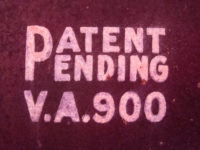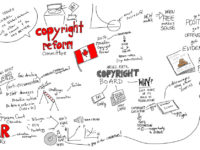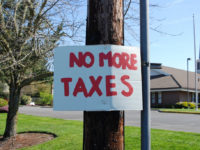The Canadian government’s Bill C-86, its Budget Implementation Act, features several notable provisions designed to curb intellectual property misuse. I posted yesterday on the rejection of “harmonized” statutory damages with the copyright collective system and new limits on the content of notices under the copyright notice-and-notice rules, with the government banning the inclusion of settlement demands or other requests for payment. Internet providers that receive notices that do not comply with the requirements will not be required to forward them to their subscribers. The bill also takes on patent misuse, including rolling out a framework for regulating patent demand letters in an effort to stop patent trolling.
Archive for October, 2018
Canadian Government Rejects Access Copyright’s Demand for Statutory Damages
Earlier this year, I wrote about lobbying pressure to “harmonize” statutory damages for copyright collectives. Access Copyright, which supported the measure, argued that the massive escalation in potential damage awards were needed for three reasons: deterrence, promotion of settlement negotiations, and efficient use of court resources. Yet as I argued in this post, none of the arguments rang true.
After months of internal wrangling, the government unveiled its proposed reforms to the Copyright Board yesterday as part of Bill C-86, its Budget Implementation Act. The bill contains many changes requested by copyright stakeholders. With respect to the statutory damages provisions, however, it has rightly left the statutory damages distinction between certain collectives in place, meaning that Access Copyright will not be able to rely on statutory damages for non-payment of tariffs, relying instead on actual damages (if any).
Canadian Government Banning Settlement Demands in Copyright Notice-and-Notice System
The Canadian government has unveiled its long-awaited plan to fix abuses with copyright’s notice-and-notice system as part of Bill C-86, its Budget Implementation Act. Last spring, Innovation, Science and Economic Development Minister Navdeep Bains released an IP strategy that promised safeguards against intellectual property abuse, particularly use of copyright notices to send settlement demands to Internet users. The Canadian notice-and-notice system was formalized in 2012 to allow rights holders to forward allegations of online copyright infringement to internet users through their internet service provider. The system was viewed as a win-win approach since it promised to deter infringement through education rather than legal threats. Yet within hours of taking effect, anti-piracy companies began sending notices that included settlement demands backed by threats of litigation.
Making Sense of the Canadian Digital Tax Debate, Part 3: New Taxes or Fees on Internet Access
A potential Netflix tax may garner the lion share of media attention, but the more harmful tax proposal comes from those advocating for a tax on Internet service providers that would have a real impact on all Internet use (earlier posts in the series include digital sales tax and Netflix tax). As far back as 1998, the CRTC conducted hearings on “new media” in which groups argued that the dial-up Internet was little different than conventional broadcasting and should be regulated and taxed as such. In other words, groups have been arguing for new Internet taxes since before Google, Facebook, or Netflix.











